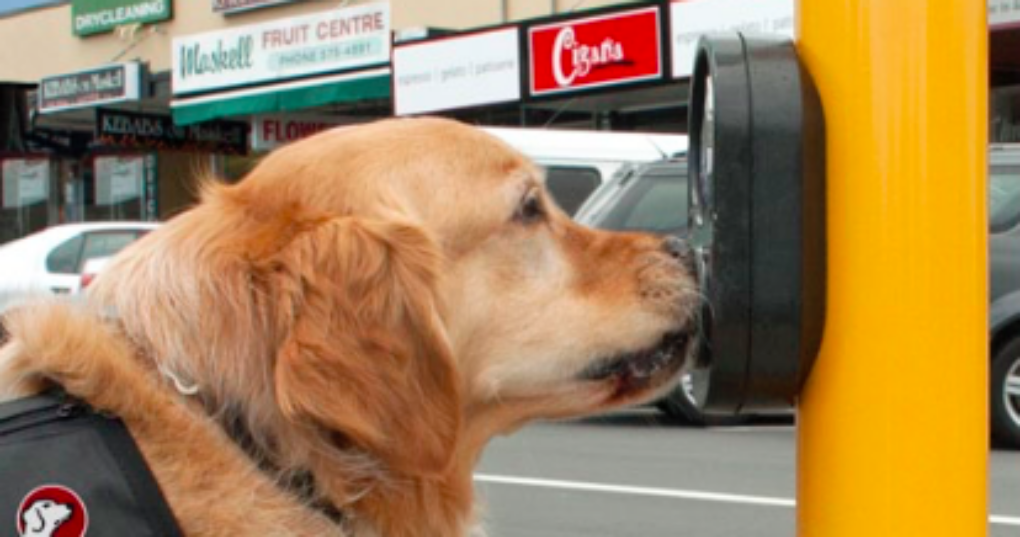Man’s best friend - the rise of emotional support animals
• August 29, 2017

Support dogs are in training for two years. Photo: supplied
While increasing numbers in the United States are registering their pets as "emotional support animals" - with one person even taking a Shetland pony on a plane - the term has no official status in New Zealand.
The general manager of the Mobility Assistance Dogs Trust, Jody Wilson, said animals provided great support for people but giving them access privileges was open to abuse.
During the two years of training at the trust, dogs are taught to open doors, pick up dropped items and act as a brace to help people walk.
But currently mobility dogs are only for physical help rather than emotional support, although Wilson said this was an area in which she had great interest.
“I think there's a lot of scope for dogs healing with all areas of mental health.”
However Ms Wilson said she had reservations about emotional support animals because of the potential for people to abuse the system.
“You'd get people saying, 'I can't go anywhere without my python'.”
Ms Wilson said this was a growing concern in the US, where under the Americans with Disabilities Act service animals can be registered by those with mental illnesses, such as post-traumatic stress disorder.
To be registered as a service animal they must be trained to perform tasks to assist their owner, such as reminding them to take daily medication or protecting them during a seizure.
Those that don’t meet these requirements can be self-registered by their owners as emotional support animals, which do not have the same access rights as service animals but are allowed on planes and in ‘pet-free’ housing.
Emotional support animals have become popular around the world for people with depression, psychotic disorders and autism.
Ms Wilson said while increased awareness around mental health was a good thing, there needed to be restrictions around animal registration.
“The act is causing quite a lot of issues . . . there was someone with a psychiatric Shetland pony. The pony’s been on a plane.”
Ms Wilson’s daughter Amy Hogan, an Auckland-based researcher and writer, agreed that not all animals were suitable for a service or support role.
“You have to earn the right to be a service animal. There needs to be protocols.”
Mobility dogs from the trust must meet certain standards to be granted public access, meaning they can go wherever their owner goes.
Ms Hogan said this was for the benefit of both the dog and the public.
“Not everybody responds well to animals being in public, so you have to have a dog that you're confident is not going to leap all over people."
She said the same standards must apply to any support animal.
“It’s not so much the idea of having a guinea pig in a restaurant or in an airplane - it’s more is that guinea pig going to cope well with being in the plane, [that] it’s not going to freak out or lose the plot.”
Ms Hogan, who lives with cerebral palsy, now has her second mobility dog, after her first dog, Bonnie, retired.
Ms Hogan is passionate about the support service animals can provide.
“The relationship between animals and their therapeutic value to humans is vastly under-represented. I really think it can help with those more subtle conditions like PTSD and emotional support."
Ms Hogan said her current mobility dog, Mary, provided “psycho-social support”, as well as physical help.
“They can build a bridge between you and the wider community.”
She said mobility dogs brought an invaluable sense of independence to those with disabilities.
“I went from being competent to being confident. Confident that I can tackle the world, confident that even if I have a bad sick day I can still be okay the next day because the dog's . . . got me through the worst of it.”

Dogs are taught a variety of ways to help. Photo: supplied


‘Strong, proud and skilled' - Māori tradeswomen use social media to inspire other wāhine
Haley Doig • June 26, 2025




‘Strong, proud and skilled' - Māori tradeswomen use social media to inspire other wāhine
Haley Doig • June 26, 2025


